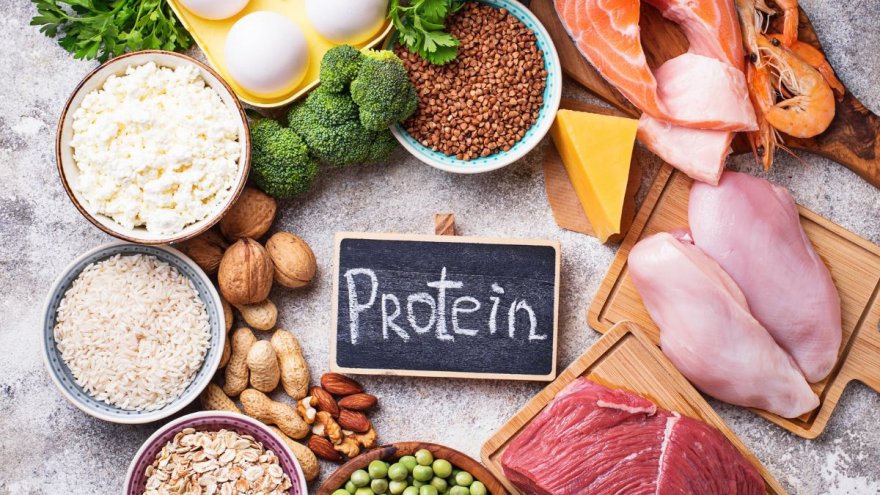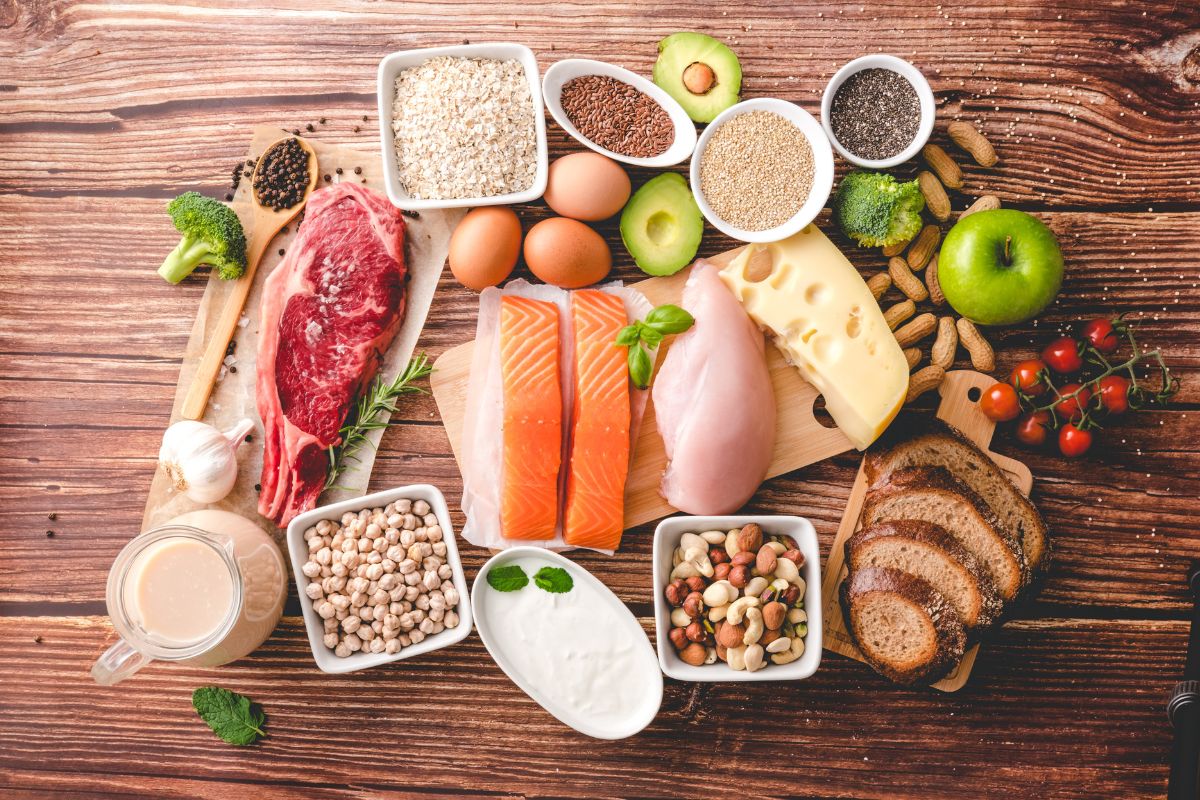What Protein Foods Are Best for Runners?

Lean meats like chicken breast and turkey offer substantial protein with minimal fat, while fatty fish such as salmon provide omega-3 fatty acids beneficial for inflammation and heart health. Eggs are a versatile and complete protein, containing all essential amino acids. For those on plant-based diets, quinoa, lentils, and chickpeas are excellent choices, offering not only protein but also fiber and essential nutrients.
Distance runners often believe that their carbohydrate intake is way more important than their protein intake. Although carb loading is very important at various training phases, you must pay attention to the protein.
Protein is not just for building muscle mass. All athletes have a recommended amount of protein they should be taking, measured in grams per pound or kilogram of body weight.
Here’s Why Protein is Important for Athletes
Sports nutrition dietitians remind us that athletes need protein for many reasons. Although distance runners and other endurance athletes have focused simply on carb loading for many years, ensuring adequate protein intake is equally important.
Most athletes are aware that protein intake is crucial to build muscle. Besides muscle growth, protein has many benefits, such as aiding in muscle repair and preventing muscles from breaking down. Protein also helps you feel full and satisfied, which can curb your appetite and keep you from eating junk food.
Which Type of Protein is Best for Running?
Runners should choose quality proteins containing branched-chain amino acids (BCAA’s). BCAA’s, like leucine, support muscle recovery and stimulate post-exercise protein building. Some of the best sources of leucine are eggs, chicken, pork, and lean beef. Whey, a type of protein found in dairy, is another excellent source of leucine.
Choosing protein sources that the body can digest and quickly use for muscle rebuilding postworkout is essential.
10 Best Protein Foods for Runners

Some athletes prefer getting all their nutrients from Whole Foods rather than supplements. When reaching for a snack post-run to help you get your daily protein, here is a list from which you can choose.
Animal-Based Protein Sources
- Chicken Breast: Lean and packed with high-quality protein, chicken breast is a staple in many athletes’ diets. It’s versatile, easy to prepare, and helps muscle recovery.
- Salmon: Rich in omega-3 fatty acids, salmon is not only a great source of protein but also supports heart health and reduces inflammation, which can be beneficial for recovery.
- Eggs: With a perfect amino acid profile, eggs are one of the best sources of protein. They’re also rich in vitamins and minerals essential for overall health and performance.
- Greek Yogurt: High in protein and calcium, Greek yogurt is excellent for muscle repair and bone health. It also contains probiotics, which can aid digestion.
- Cottage Cheese: This is a fantastic source of casein protein, which is slowly absorbed and can help with muscle repair during sleep, making it an excellent option for a nighttime snack.
Plant-Based Protein Sources
- Quinoa: Unlike most plant foods, quinoa is a complete protein, containing all nine essential amino acids. It’s also high in fiber and various vitamins and minerals.
- Lentils: Packed with protein, fiber, and essential nutrients, lentils are great for runners. They can help with muscle repair and provide a steady source of energy.
- Chickpeas: Versatile and high in protein, chickpeas can be used in salads, soups, or as a base for hummus. They’re also rich in fiber and iron.
- Tofu and Tempeh: Made from soybeans, tofu and tempeh are high-quality plant-based proteins. They are excellent meat substitutes, rich in protein and other essential nutrients.
- Black Beans: A great source of protein and fiber, black beans can support muscle recovery and provide a slow release of energy, perfect for long runs.
What Protein Supplements Are the Best?
Sometimes, it is more convenient to meet your protein needs in a supplement rather than food intake. Whether you prefer a protein shake or protein bar, having easily accessible protein postworkout is important for recovery.
There are many different types of protein powder out there. Many runners prefer a plant-based protein, especially anyone who is lactose intolerant, while others swear by whey protein. Protein options include?
- Casein Protein: While casein is also a milk-based protein, it is a much slower-release and slower-acting protein than whey.
- Plant-Based Protein: If you are looking for a vegan protein powder, look for one that is plant-based. Pea protein is a popular option with a delicious, earthy taste.
- Rice Protein: A rice-based protein is another excellent option as a protein supplement.
- Soy Protein: The protein found in soy is a popular meat substitute for vegans and vegetarians.
- Whey Protein Isolate: Whey-based proteins are fast-acting, and the amino acids are quickly absorbed into your body.
How Much Protein Does an Athlete Need?
An endurance athlete requires about 1/2 grams of protein for every 2.2 pounds of body weight. Athletes primarily in strength training need more protein (about 1.4-2:0 grams per 2.2 pounds of body weight).
If you are working on weight loss, you may want even more protein daily. Many of people use protein as a way to help keep them from feeling hungry.
Are Protein Supplements Better than Food Sources of Protein?
Neither is really better. However, some of the protein powders ensure you get the perfect balance of macronutrients and amino acids. Those athletes hoping to get all their nutritional needs from Whole Foods may need to include some.
To ensure your body gets everything it needs, it is important to be intentional in your meal planning and food prep. Some minor adaptations to your diet can go a long way.
It is also important to note that many supplements are full of artificial sweeteners and fillers that are not necessarily what you want to put in your body. If you feed yourself whole grains, fresh vegetables, fruits, and grass-fed beef, your body will thank you for the real food.
Latest Articles
 Is Running on a Treadmill Easier Than Running Outside?Runners have their own preferences, whether it is treadmill running, running outside on the road, or exploring trails. So...
Is Running on a Treadmill Easier Than Running Outside?Runners have their own preferences, whether it is treadmill running, running outside on the road, or exploring trails. So... Is It OK to Use Trail Running Shoes on the Road?While trail running shoes can be used on roads, especially in situations where a runner encounters mixed terrains or pref...
Is It OK to Use Trail Running Shoes on the Road?While trail running shoes can be used on roads, especially in situations where a runner encounters mixed terrains or pref... How to Fix Sore Quads After Running?Rest, ice, gentle stretching, and over-the-counter pain relievers can help soothe sore quads after running. Also, ensure ...
How to Fix Sore Quads After Running?Rest, ice, gentle stretching, and over-the-counter pain relievers can help soothe sore quads after running. Also, ensure ... 10 Fruits With The Most Electrolytes to Replace Sports DrinksThese fruits are high in electrolytes such as potassium, magnesium, and calcium, essential for hydration, muscle function...
10 Fruits With The Most Electrolytes to Replace Sports DrinksThese fruits are high in electrolytes such as potassium, magnesium, and calcium, essential for hydration, muscle function...

